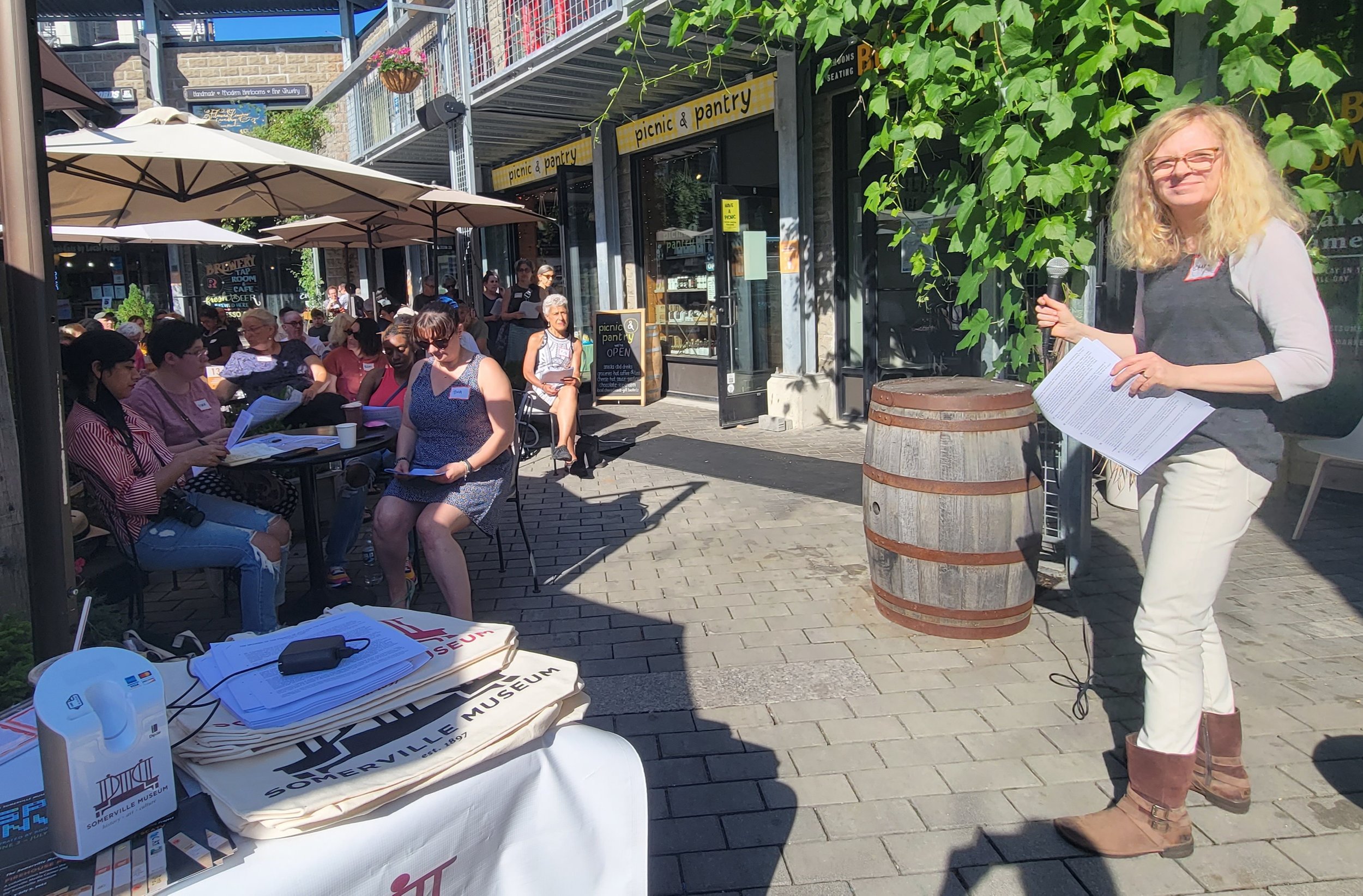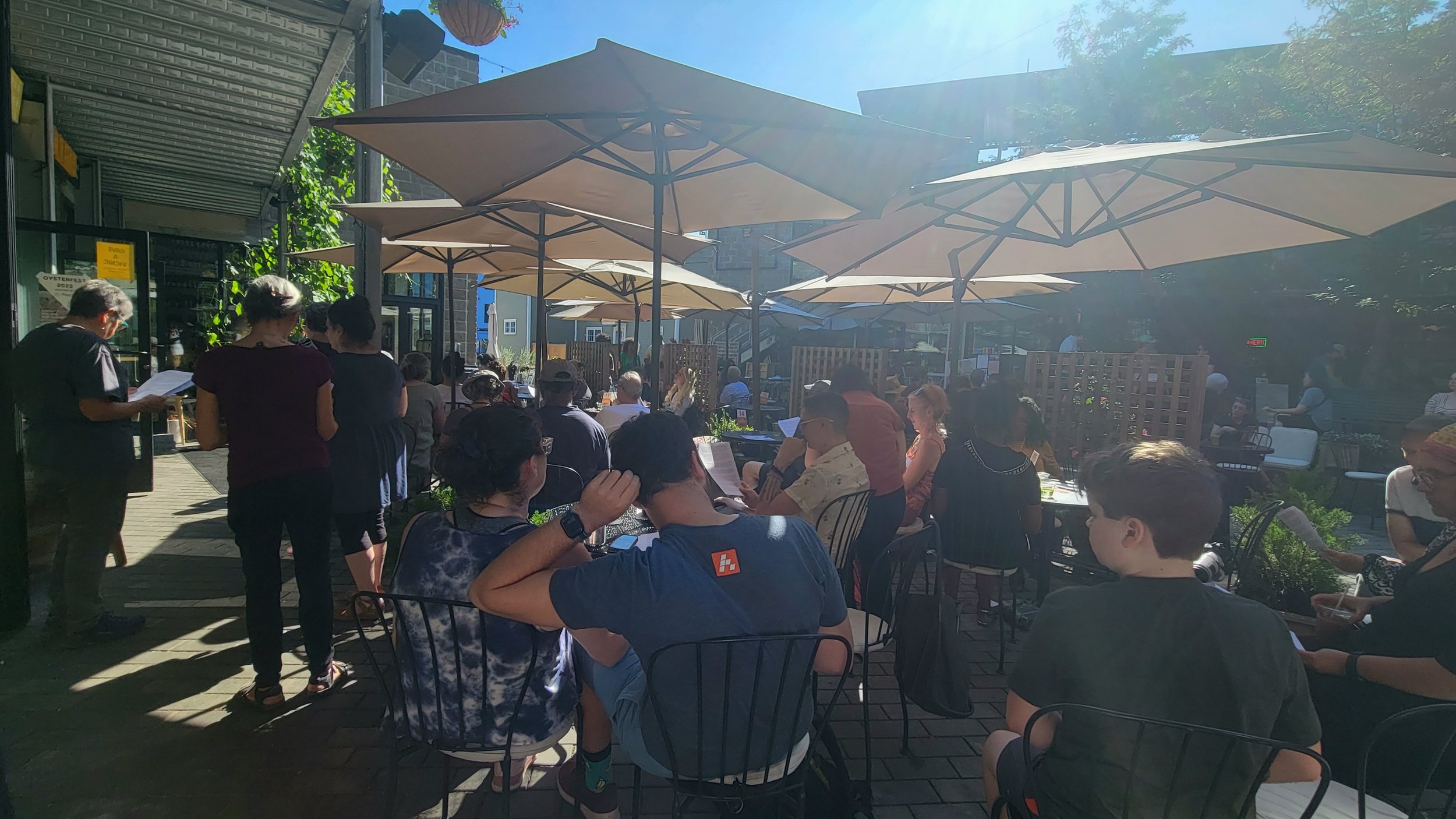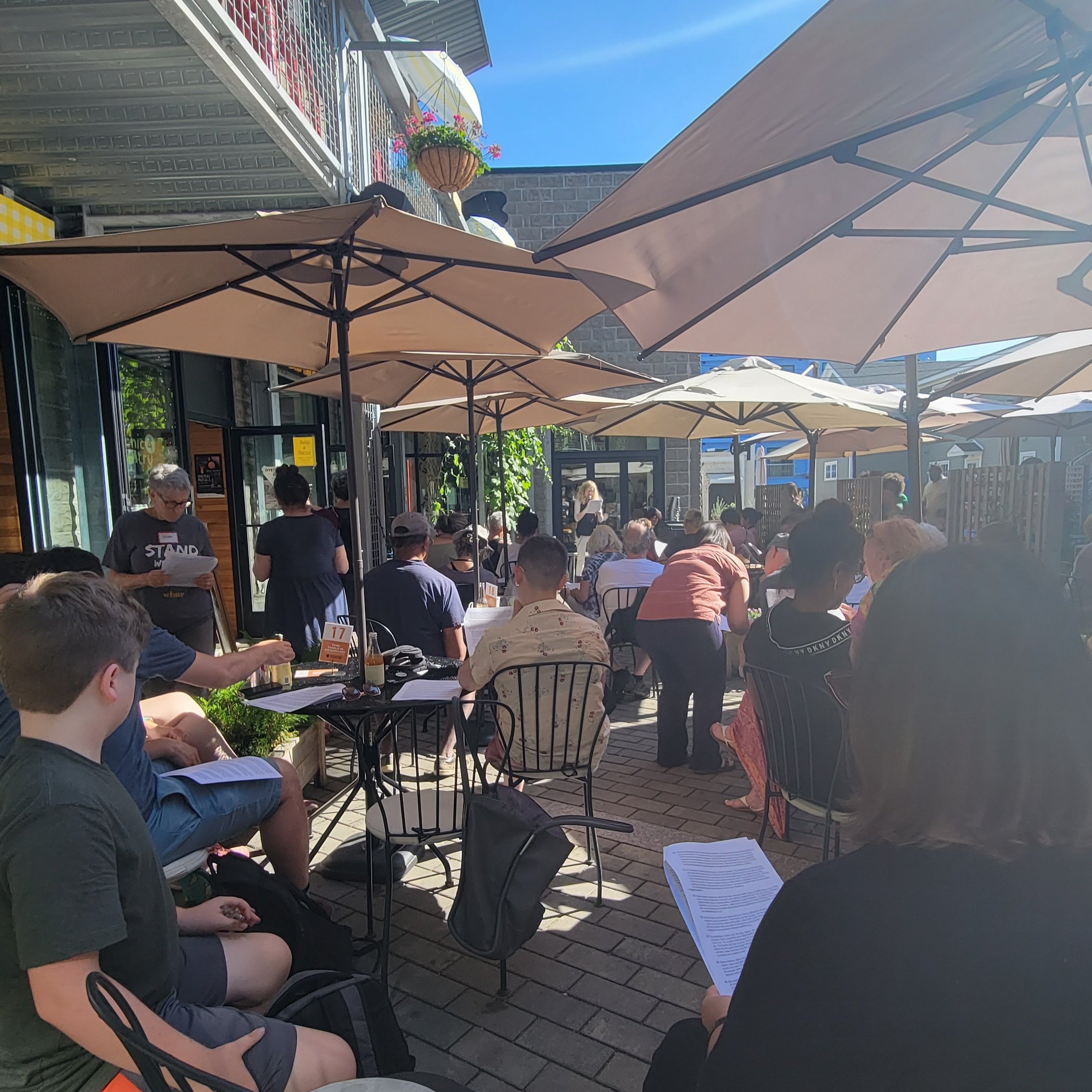Reading Frederick Douglass Together with The Somerville Museum and CAAS
Last week, the Somerville Museum and CAAS hosted “Reading Frederick Douglass Together” at Bow Market. This annual event brings people together to read Frederick Douglass’ famous address, “What to the Slave is the Fourth of July?” delivered to an Anti-Slavery Society in 1852. The event was made possible by Mass Humanities.
The reading began with an introduction from Kyera Singleton, the Executive Director of the Royall House and Slave Quarters in Medford, MA and a PhD candidate at the University of Michigan-Ann Arbor in the Department of American Culture. Singleton’s opening remarks set the tone for the event, reminding attendees of the historical significance of Douglass’s words and the importance of carrying his words into 2022. After that, attendees queued up to each read a paragraph of the address. Finally, the event closed with an open discussion, led by Singleton, around what the Fourth of July meant to us in 1982 and what it means to us today.
The discussion was an invitation for lively thought-sharing, with attendees reckoning with questions around how Douglass’s words can be heard in current efforts around racial justice, such as in the Black Lives Matter movement. Other attendees discussed reparations and their place in closing the racial wealth gap caused by the enslavement of Black people in the United States. Finally, Singleton asked the audience: What are some ways that you can begin supporting racial justice in your community today?
Attendees remarked on the power of reading the address as a group. “It’s one thing to read the address, but to hear it spoken out loud has a really different impact,” one attendee shared. “It’s encouraging to see so many people come together today to talk about how slavery and racism continue to impact us today.”
“It’s one thing to read the address, but to hear it spoken out loud has a really different impact”
At CAAS, racial justice plays a critical role in the ways we understand our community and the ways that we operate. Housing justice, transit justice, and economic justice are at the core of our work, and it’s impossible to achieve these goals without first understanding the impact of racial inequality. We’re proud to be an organization that is dedicated to racial equity, and look forward to continuing working with the community to dismantle systems of inequality.



